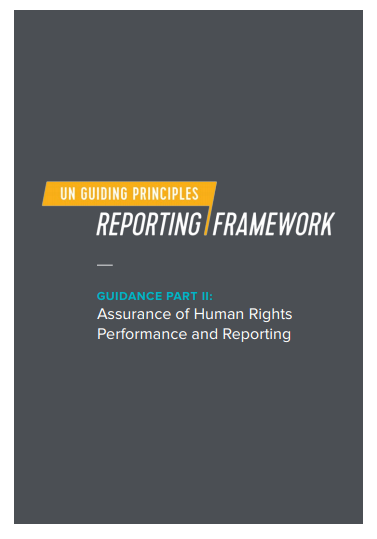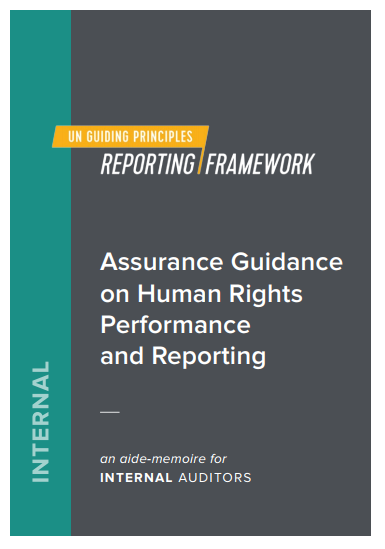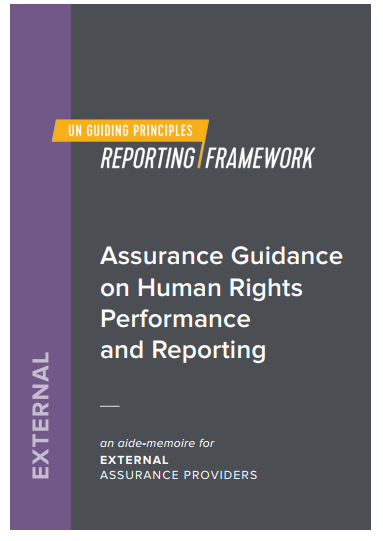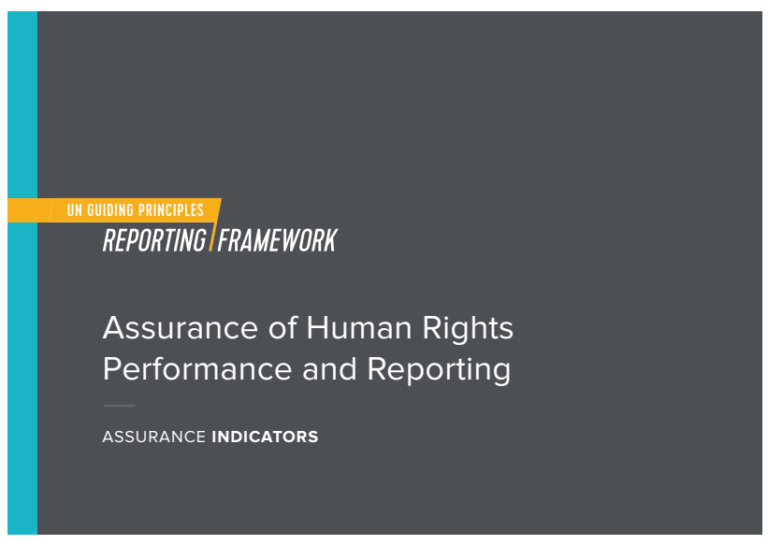This subject matter guidance serves two purposes: one, to help internal auditors assure companies’ human rights performance, and two, to support external assurance providers’ assurance of companies’ human rights reporting.
The UNGP Assurance Guidance is designed to:
- provide tailored support to expert assurance practitioners who conduct internal audit in companies, provide external assessments of companies’ human rights performance, or assure companies’ human rights (among other non-financial) reporting
- add value to the professional standards that govern many of these practitioners by setting out the specific procedural approaches and types of information and evidence that are important when it comes to the subject matter of human rights
- address perceived risks and deficits in the current practice of many types of assurance in relation to the subject matter of human rights
- bring value to the intended beneficiaries of these types of assurance: in the first place, companies themselves, and – in the case of the external assurance of companies’ reporting – their shareholders and other stakeholders as well
- serve the ultimate purpose of helping to strengthen companies’ underlying human rights performance and, therefore, prevent and remedy negative impacts on the human rights of people affected by their operations and value chains
The goal of this guidance is to advance effective human rights assurance as a means to help companies improve their human rights risk management systems and human rights reporting in line with the UN Guiding Principles on Business and Human Rights.





